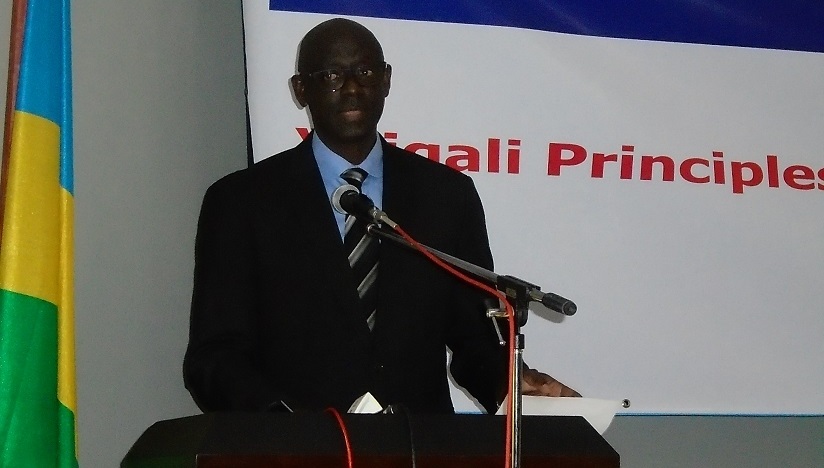Military, police and civilian officers from 14 countries on the continent and beyond have convened at Rwanda Peace Academy in Musanze District for a weeklong international course on the Kigali Principles on Protection of Civilians, that started on Wednesday.


Military, police and civilian officers from 14 countries on the continent and beyond have convened at Rwanda Peace Academy in Musanze District for a weeklong international course on the Kigali Principles on Protection of Civilians, that started on Wednesday.
Passed last year in Rwanda, the Kigali Principles aim at improving the capacity of peace operations to protect civilians and ensuring that priority is given to prevention rather that management of conflicts.
The Principles require UN peacekeeping troops to send well trained peacekeepers and to intervene without delay in case the lives of civilians are under threat.
According to the acting spokesperson for Rwanda Defence Forces, Lt. Col. René Ngendahimana, 38 countries have so far endorsed the Kigali Principles.
"After the endorsement of the Principles, the next stage is implementation. This course aims to highlight these Principles so that participants can take this new understanding and approach back to their countries so that peacekeeping can be improved in regard to protecting civilians,” he said.
Justice minister Johnston Busingye, who opened the training, said UN peacekeeping missions keep increasing due to the fact that violence, conflicts and crises that threaten civilians are continuously growing which calls for appropriate measures to mitigate these challenges.
"The contemporary operating environment of peacekeeping is becoming more complex. Civilians have deliberately been targeted in armed conflicts. New and emerging threats call for peacekeepers to perform while at the same time remaining credible, impartial and professional,” he said.
This course, Busingye noted, is not only important but it is also relevant. "The interactive discussions you will hold are a great opportunity to further understand the ultimate necessity of linking the Kigali Principles with the UN Protection of Civilians’ Guidelines. This will enhance timely intervention in case of imminent danger to civilians in armed conflicts.”
During the course, participants will look through the 18 Principles and discuss each in detail.
Frédérique de Man, the Dutch ambassador to Rwanda, said that the weeklong training will also be about sharing experiences, like what better scenarios to learn from in different peacekeeping operations around the world.
"This course will emphasise the responsibility to act and to prevent atrocities from happening to people the mission intends to protect,” she said.
She stressed the importance of the Kigali Principles and said her country will advocate for more endorsements.
"We have seen that troop supplying countries were not ready. There is a discrepancy between the mandate and what the troops can use. So that’s where the Kigali Principles that call upon us to act come in and we are proud to have been among the first countries to endorse them,” she said.
"Both prevention and protection of civilians will be among the priorities of our shared membership with Italy in the UN Security Council in the next two years. We will use that position to get as many countries as possible on board,” she noted.
editorial@newtimes.co.rw


